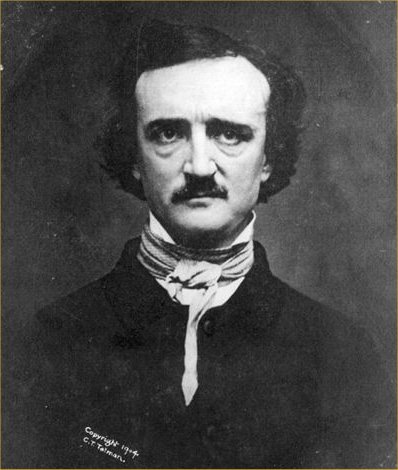
"Ligeia" takes place in the early 19th century in England in the Narrator's second home which was very luxurious. The main characters in this short story are the Narrator, who we think is Edgar Allen Poe, Ligeia and Rowena. We believe that the writer of "Ligeia", Edgar Allen Poe is the central character in this story. The Narrator is a widower; the death of his first wife, Ligeia caused him to start a new life so he could forget about his loss. He married another woman, Rowena and together they lived in the Narrator's second home. Throughout the story, the Narrator doesn't show any love towards his second wife, or nearly as much affection as he did to his first wife. Still hung over on the death of his first love, Ligeia, the Narrator begins to use opium which causes hallucinations. These hallucinations helped the Narrator see the spirit of Ligeia as though she was still alive. Ligeia is described by the Narrator as a "majesty so divine!--the skin rivaling the purest ivory, the commanding extent and repose, the gentle prominence of the regions above the temple; and then the raven black, the glossy, the luxuriant and naturally-curling tresses, setting forth the full force of the Homeric epithet, "hyacinthine!"" Her skin was flawless and her statue was strong. Her hair was beautifully black and had perfect curls. She is compared to Hyacinthine or Hyacinth, the divine hero from Greek mythology who was admired of his beauty that ultimately caused jealousy and suffering when he died. However, in Greek mythology he was reborn as a flower. This relates to Ligeia because in the end she resurrects as a divine being, even more godly and heavenly then when the Narrator knew her. The narrator uses Ligeia as a symbol of death and femininity, with both feminine mortality and immortality. To get over his grief and “lonely desolation” the Narrator remarries to the “fair-haired and blue-eyed Lady Rowena.” Rowena's beauty never attracted the Narrators attention like Ligeia had. In fact, "he loathed her with a hatred belonging more to a demon than to man." In the end, Rowena dies from drinking "three or four large drops of a brilliant and ruby colored fluid." The overall theme to "Ligeia" is that death is "only through the weakness of his feeble will." Ligeia represents a strong will to live, Rowena represents the feeble will. Due to Ligeia's will to live she is able to take overcome the barrier of death through Rowena's body. There is also hints of Romanticism throughout the story; there is an emphasis on the supernatural and nature.

No comments:
Post a Comment